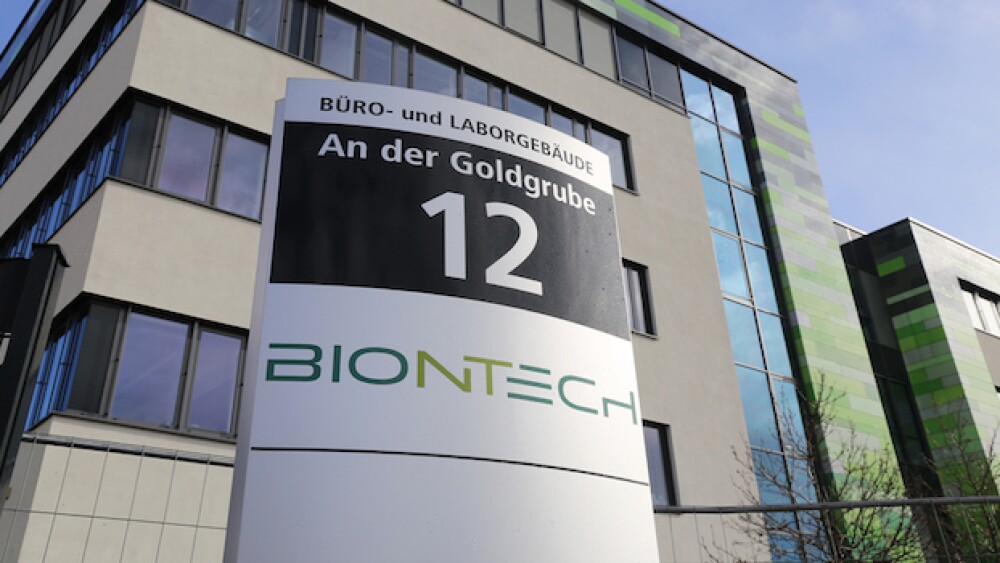* The EPFL is at the forefront of the development of biosensor chips that can be implanted under the skin and are capable of following biological indicators;
* By testing these innovative chips, PFM intends to boost its new molecule development process
Castres (France) November 10, 2015 - Pierre Fabre Médicament (PFM) and the Swiss Federal Institute of Technology in Lausanne (EPFL) have agreed to a scientific collaboration on the use of biosensor chips developed by the EPFL in clinical studies conducted by PFM.
The biosensor chips developed by the EFPL’s scientists are able to assess the homeostasis of individuals (pH, temperature, blood glucose level, etc.) and measure more accurately than traditional methods the concentration in the body of an active agent coming from an administered drug. Biosensors chips can therefore have many applications over the development of a new molecule:
• In the early stage of a molecule’s development, biosensors chips will allow scientists to find out faster whether or not it might be interesting to continue the study, which will increase the chances of success of the project down the road.
• In the clinical development stage, the precise measurement of the concentration of active agents administered will make it possible to analyze, almost in real time, the therapeutic effect and tolerability of the drug.
• Once a drug is marketed, this new technology could also make it easier to monitor treatment progress and adherence for specific diseases, expensive treatments or drugs with low therapeutic range.
The collaboration between the EPFL and Pierre Fabre Medicament’s R&D teams began with a feasibility study on the use of biosensor chips in the development of a molecule, currently in proof-of-concept clinical trials (Phase II) for the treatment of schizophrenia (F17464). The main results of the study are expected to be published in the 2nd quarter of 2016.
“Through this original collaboration with the Swiss Federal Institute of Technology in Lausanne, our R&D takes a resolute turn toward new information technologies applied to drug development. The use of biosensor chips in clinical studies is an innovative project whose success would boost the development of effective and safe new molecules for patients”, said Dr. Lawrence Audoly, Research and Development Director at Pierre Fabre Médicament.
“Knowing precisely and in real time the effect of drugs on the body is critical to personalized medicine and the accuracy expected in tomorrow’s world. Biosensor chips bring to the research teams of Pierre Fabre Médicament a unique and reliable solution to measure with extreme accuracy data that are critical to our understanding of the effects of a drug candidate”, said Dr. Sandro Carrara, Professor at the Swiss Federal Institute of Technology in Lausanne.
About biosensor chips:
The technological innovation brought by biosensor chips could have many medical applications. These highly innovative systems could be implanted under the skin of patients. Their energy supply is then provided by a simple patch applied to the skin, which also enables to transfer the data to a mobile phone. Patients and their doctors could then use this real-time data to customize the treatments.
About F17464:
F17464 is a drug candidate developed by Pierre Fabre Médicament in the area of Central Nervous System, one of the company’s four strategic development areas, along with Oncology, Dermatology and Consumer Health Care. This compound with D3 antagonist, 5-HT1A partial agonist properties is currently under development in the treatment of schizophrenia. The ongoing clinical trial is designed to evaluate the efficacy and safety of F17464 compared to placebo in patients suffering from acute phase of schizophrenia. This multinational trial will be conducted over a six-week period on 142 patients in several European countries.
About Pierre Fabre Médicament’s R&D
Pierre Fabre is the third largest French pharmaceutical group. In 2014, its sales reached €2.1 billion, with Pierre Fabre Médicament accounting for 55% and international sales for 55% of the Group’s total revenue. Located since its creation in the French region Midi-Pyrénées, Pierre Fabre has branches in 44 countries and distribution agreements in over 130 countries. Covering all healthcare segments, from ethical drugs, to dermo-cosmetics and Over the Counter Medications (OTC), Pierre Fabre employs over 10,000 people worldwide. In 2014, Pierre Fabre allocated more than 17% of its drug revenues to R&D, including in three priority research areas: oncology, dermatology and neuropsychiatry. About 50% of the company’s pharmaceutical R&D investments are dedicated to oncology. Through the Pierre Fabre Participations holding company, the Pierre Fabre Foundation, a government-recognized public-interest foundation since 1999, owns 86% of Pierre Fabre Laboratories. Remaining shares are owned by company employees, amounting to 7,3 %, and through treasury stock. Pierre Fabre Laboratories have reached the level “confirmed” evaluation AFAQ AFNOR 26000 certification on social responsibility (CSR).
For more information, please visit www.pierre-fabre.com
About the EPFL (L’Ecole polytechnique fédérale de Lausanne)
EPFL is Europe’s most cosmopolitan technical university with students, professors and staff from over 120 nations. A dynamic environment, open to Switzerland and the world, EPFL is centered on its three missions: teaching, research and technology transfer. EPFL works together with an extensive network of partners including other universities and institutes of technology, developing and emerging countries, secondary schools and colleges, industry and economy, political circles and the general public, to bring about real impact for society.
The Bio/interfaces Group at the Integrated Systems Laboratory (Laboratoire des Systèmes Intégrés - LSI) studies design-technologies for Circuits and Systems in Biomedical Applications. The group focus is on Bioelectronics and Biophysics of nano- and bio-structured thin molecular films integrated on micro and nano fabricated silicon chips for applications in human diagnostics, translational medicine, and biotechnology. The group is one of the worldwide leader groups in the field of design and fabrication of biosensors-on-chip and bio-interfaces, with target on DNA and protein based arrays. The research is specially focused on the development of new bio/CMOS interfaces by also integrating new and innovative nano- and bio- materials in the electrochemical-sensing surface. Research involves both the design of novel biosensing devices, intimate integration of highly heterogeneous systems, and development of electronics with the CMOS technology. The novel approach proposed by this leading group corresponds to a co-design of the different layers (bio, nano, and CMOS frontend) to improve the integration of these highly heterogeneous systems in order to overcome the usual biosensors limits in terms of specificity and sensitivity.
Help employers find you! Check out all the jobs and post your resume.




